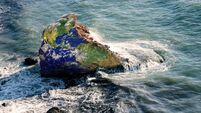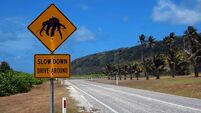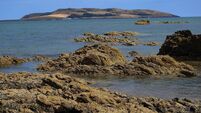How to behave around basking sharks

Basking Sharks: The Irish Basking Shark Group
Basking sharks are widely distributed across the world’s oceans, but Irish waters are a hotspot for this seafaring species. And they have been showing up on social media a lot too lately as hikers, paddleboarders, and kayakers are thrilled to see and share footage of these amazing creatures.
But these wild creatures are still endangered and the experts want to ensure they aren't disturbed. The Irish Basking Shark Group has some facts for wildlife fans.








![<p> The International Union for the Conservation of Nature says that “an ecosystem is collapsed when it is virtually certain that its defining biotic [living] or abiotic [non-living] features are lost from all occurrences, and the characteristic native biota are no longer sustained”.</p> <p> The International Union for the Conservation of Nature says that “an ecosystem is collapsed when it is virtually certain that its defining biotic [living] or abiotic [non-living] features are lost from all occurrences, and the characteristic native biota are no longer sustained”.</p>](/cms_media/module_img/9930/4965053_12_augmentedSearch_iStock-1405109268.jpg)